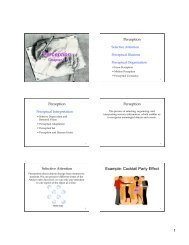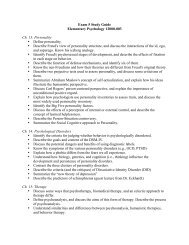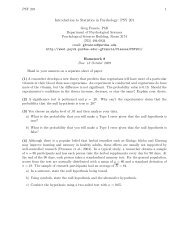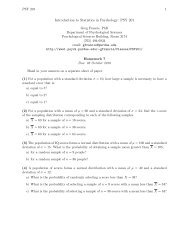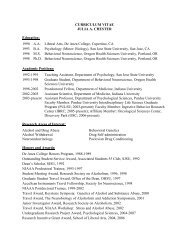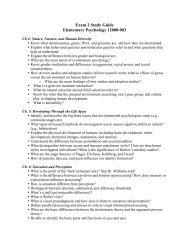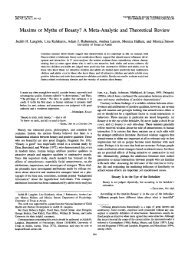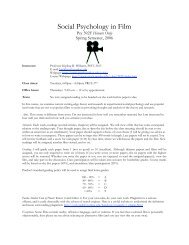Sensation & Perception
Sensation & Perception
Sensation & Perception
Create successful ePaper yourself
Turn your PDF publications into a flip-book with our unique Google optimized e-Paper software.
Localization of Sounds<br />
Because we have two ears, sounds that reach one ear<br />
faster than the other ear cause us to localize the<br />
sound.<br />
Hearing Loss<br />
Conduction Hearing Loss: Hearing loss caused by<br />
damage to the mechanical system that conducts sound<br />
waves to the cochlea.<br />
Sensorineural Hearing Loss: Hearing loss caused by<br />
damage to the cochlea’s receptor cells or to the auditory<br />
nerve, also called nerve deafness.<br />
85<br />
87<br />
Localization of Sound<br />
1. Intensity differences<br />
2. Time differences<br />
Time differences as small as 1/100,000 of a second can<br />
cause us to localize sound. The head acts as a “shadow”<br />
or partial sound barrier.<br />
Hearing Deficits<br />
Older people tend to hear low frequencies well but suffer<br />
hearing loss when listening for high frequencies.<br />
Deaf Culture<br />
Cochlear implants are electronic devices that enable the<br />
brain to hear sounds.<br />
EG Images/ J.S. Wilson ©<br />
89 Deaf Musician<br />
Cochlear Implant<br />
90<br />
Wolfgang Gstottner. (2004) American<br />
Scientist, Vol. 92, Number 5. (p. 437)<br />
86<br />
88<br />
15


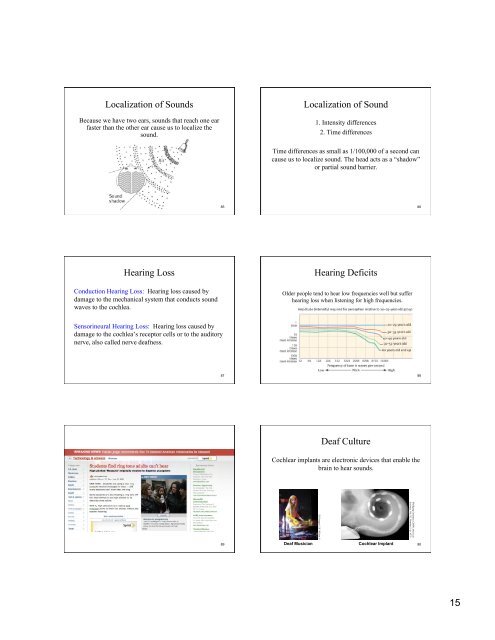
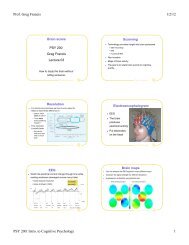

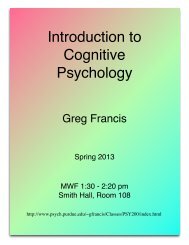

![Exam 4 Study Guide[1]](https://img.yumpu.com/45196739/1/190x245/exam-4-study-guide1.jpg?quality=85)
